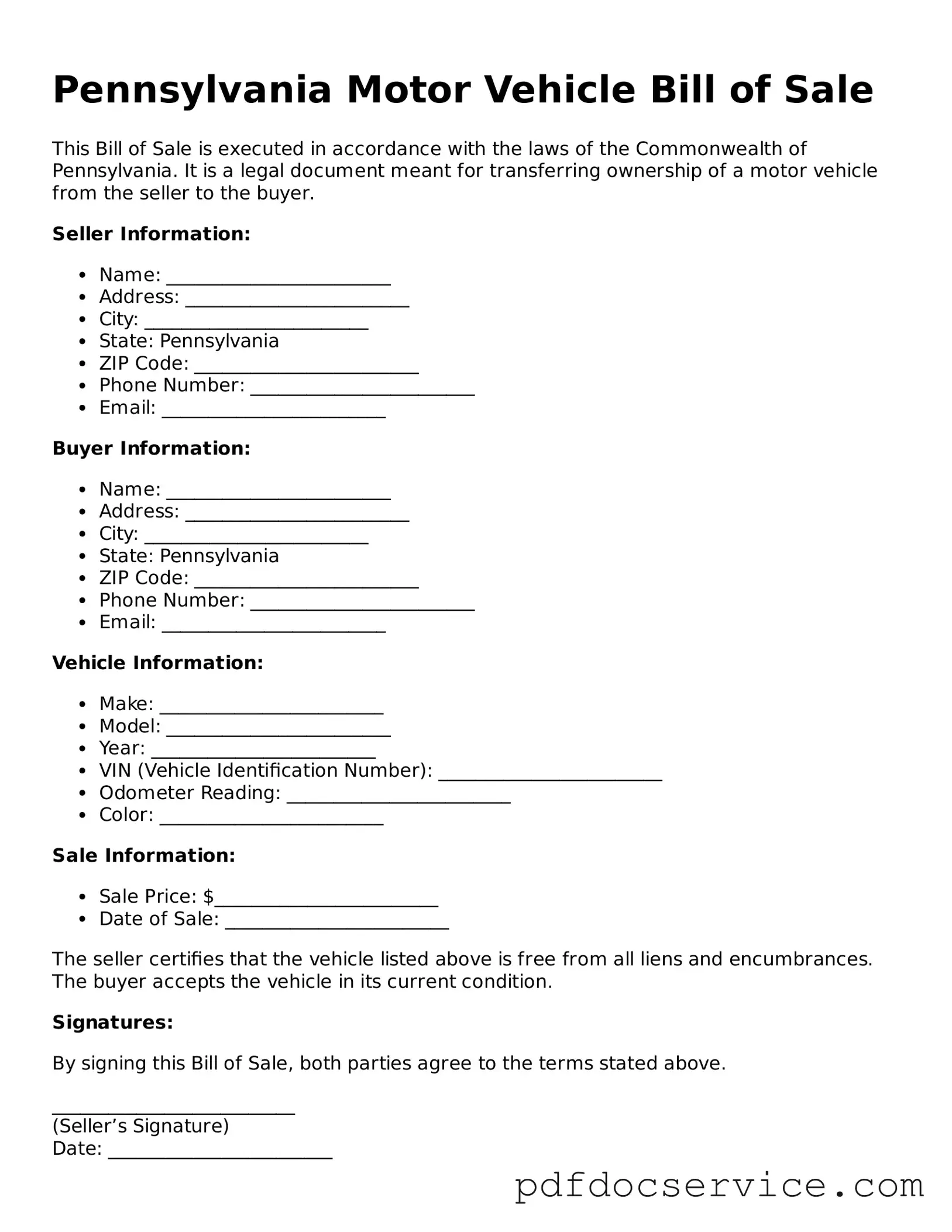What is a Pennsylvania Motor Vehicle Bill of Sale?
A Pennsylvania Motor Vehicle Bill of Sale is a legal document that records the sale of a vehicle between a buyer and a seller. It serves as proof of the transaction and includes important details about the vehicle and the parties involved.
Is a Bill of Sale required in Pennsylvania?
While a Bill of Sale is not legally required for every vehicle transaction in Pennsylvania, it is highly recommended. Having a Bill of Sale can help protect both the buyer and the seller by providing clear documentation of the sale, which can be useful for registration and title transfer purposes.
A comprehensive Bill of Sale should include the following information:
-
Names and addresses of both the buyer and seller
-
Vehicle identification number (VIN)
-
Make, model, and year of the vehicle
-
Odometer reading at the time of sale
-
Sale price of the vehicle
-
Date of the sale
-
Signatures of both parties
Can I create my own Bill of Sale?
Yes, you can create your own Bill of Sale as long as it includes all the necessary information. However, using a standard form can ensure that you don’t miss any important details. Many online resources provide templates specifically for Pennsylvania.
Do I need to notarize the Bill of Sale?
No, notarization is not required for a Bill of Sale in Pennsylvania. However, having it notarized can add an extra layer of security and authenticity to the document.
How do I transfer the title after completing the Bill of Sale?
To transfer the title, the seller must sign the title over to the buyer. The buyer then needs to take the signed title and the Bill of Sale to their local Department of Motor Vehicles (DMV) office to complete the title transfer and register the vehicle in their name.
What if the vehicle is sold "as-is"?
If the vehicle is sold "as-is," it means the buyer accepts the vehicle in its current condition without any warranties from the seller. This should be clearly stated in the Bill of Sale to avoid any misunderstandings.
Can I use a Bill of Sale for a vehicle that is not registered?
Yes, a Bill of Sale can be used for unregistered vehicles. It provides proof of ownership transfer, which can be useful for the buyer when they go to register the vehicle in their name.
What should I do if I lose the Bill of Sale?
If you lose the Bill of Sale, it’s important to try to obtain a copy from the other party involved in the transaction. If that’s not possible, you may need to create a new Bill of Sale, noting the loss of the original document and including all relevant details.
You can find a Pennsylvania Bill of Sale form through various online legal resources, local DMV offices, or by consulting with a legal professional. Many templates are available for free or for a small fee.

